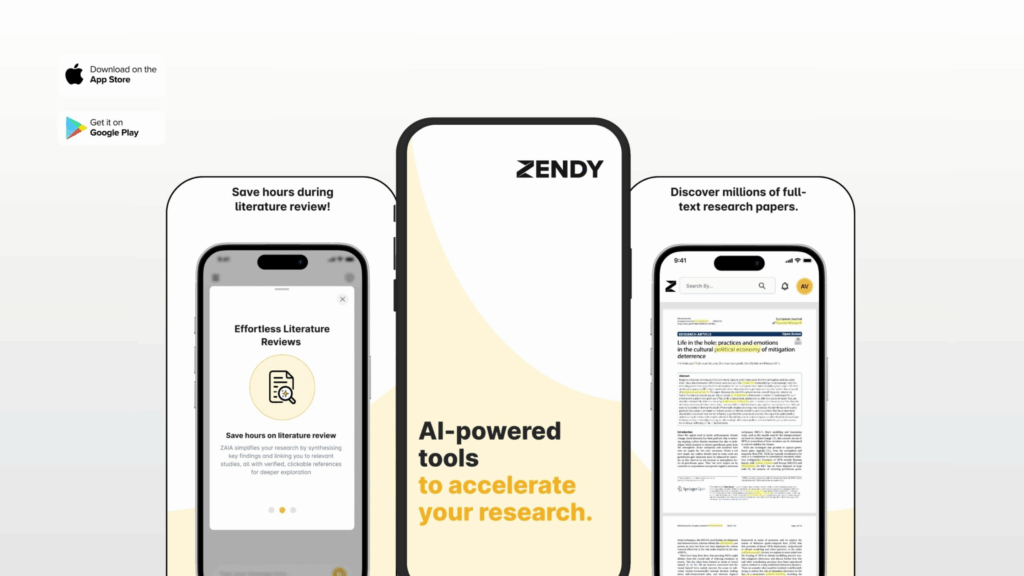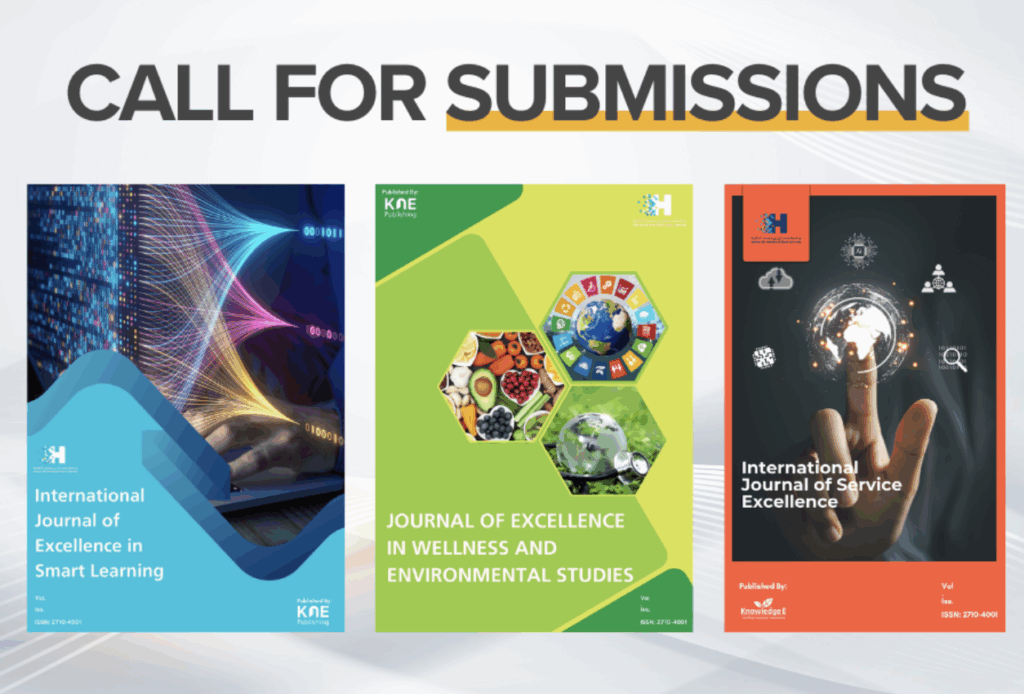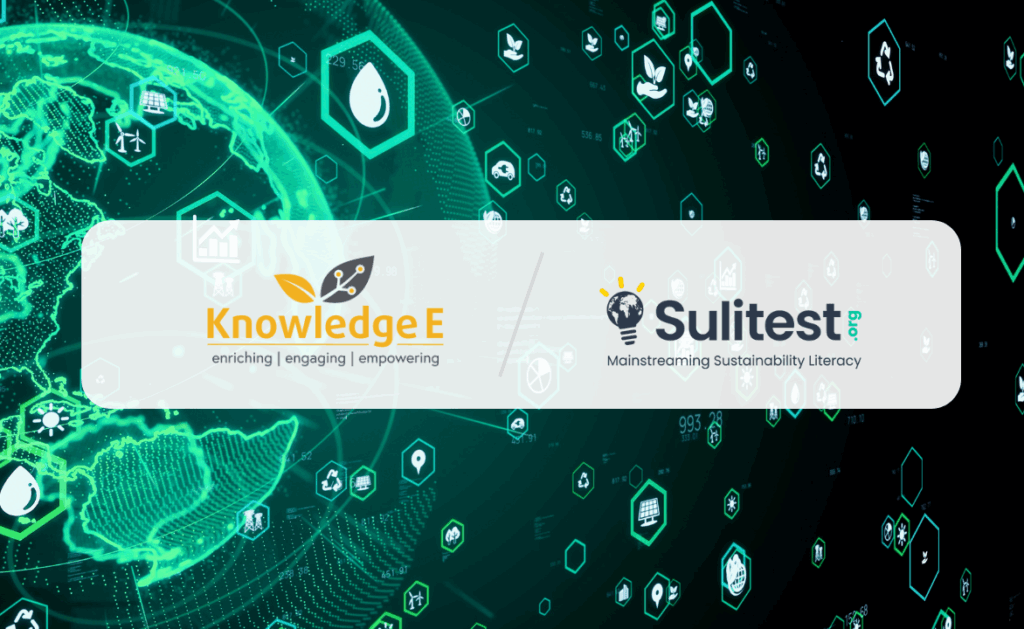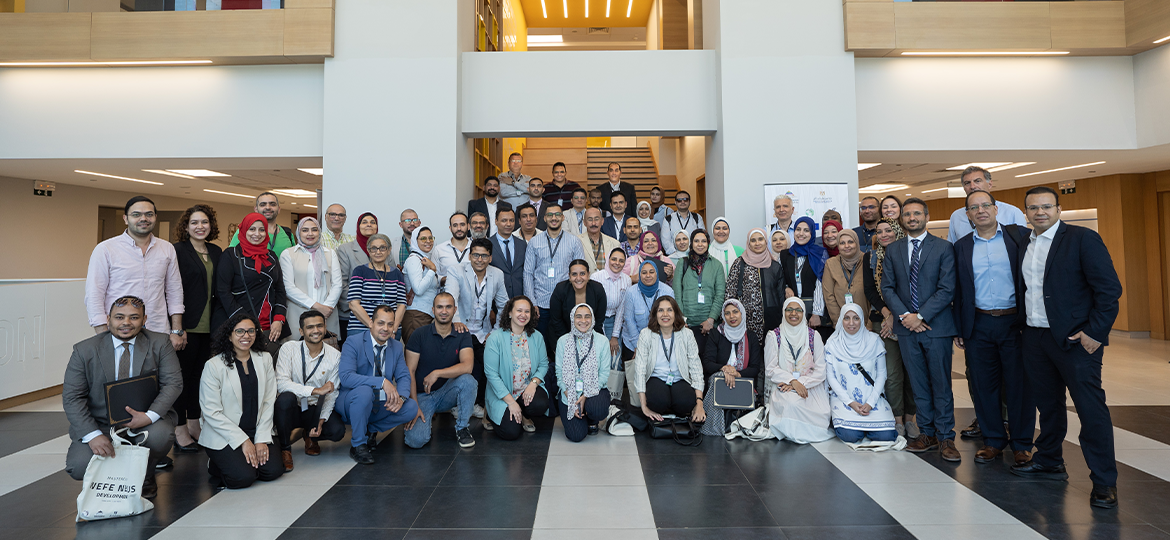
Over 60 researchers representing 21 Egyptian institutions participated in the ‘Masterclass in WEFE Nexus Development: Water-Energy-Food Ecosystems in the South Mediterranean’, from the 4th to the 6th of July 2023 in Cairo. The Masterclass explored the connections of the WEFE Nexus and its profound implications for sustainable development and was a joint initiative of the Egyptian Knowledge Bank (EKB), the Ministry of Higher Education and Scientific Research (MOHESR), Knowledge E, the PRIMA Foundation, SustainFood, the Egyptian Center for Innovation & Technology Development (ECIDT).
The WEFE Nexus is a conceptual framework that emphasizes the interconnectedness of water, energy, food, and ecosystems and encourages integrated and sustainable management of these resources. The concept recognises that these sectors are closely linked and that actions in one sector can have significant impacts on the others. Traditionally, these sectors have been managed separately, but increasing pressures on resources, such as population growth, climate change, and environmental degradation have highlighted the need for a more coordinated and sustainable approach. WEFE Nexus acknowledges the need and offers solutions for an integrated and holistic approach to resource management.
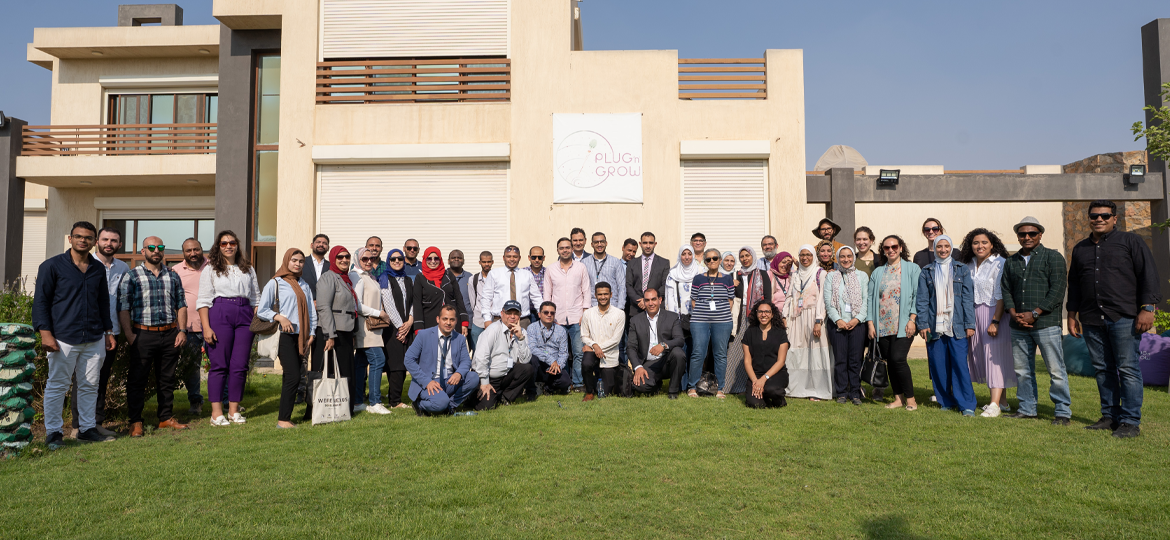
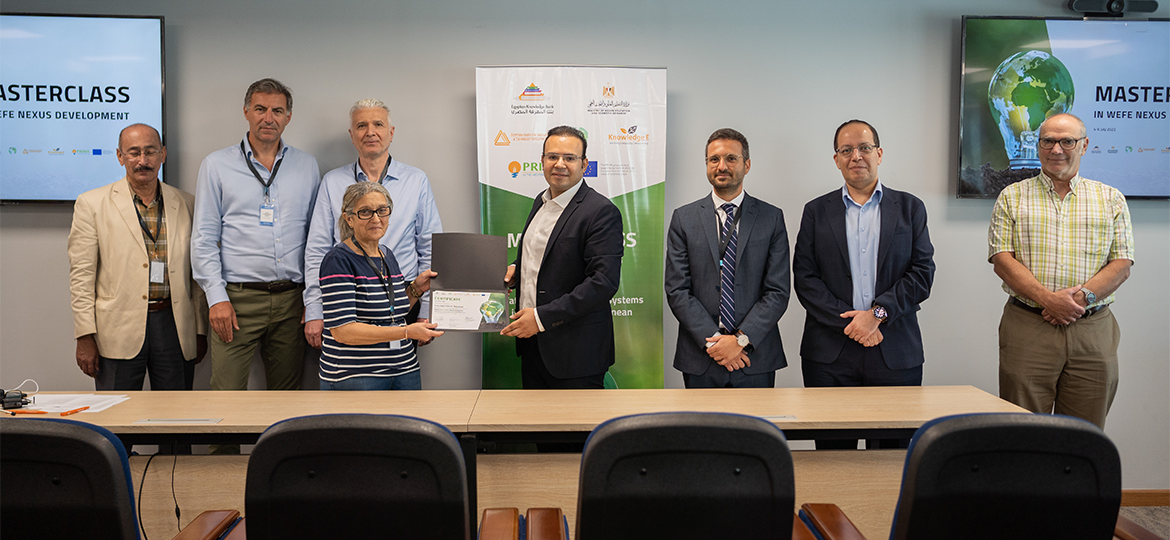
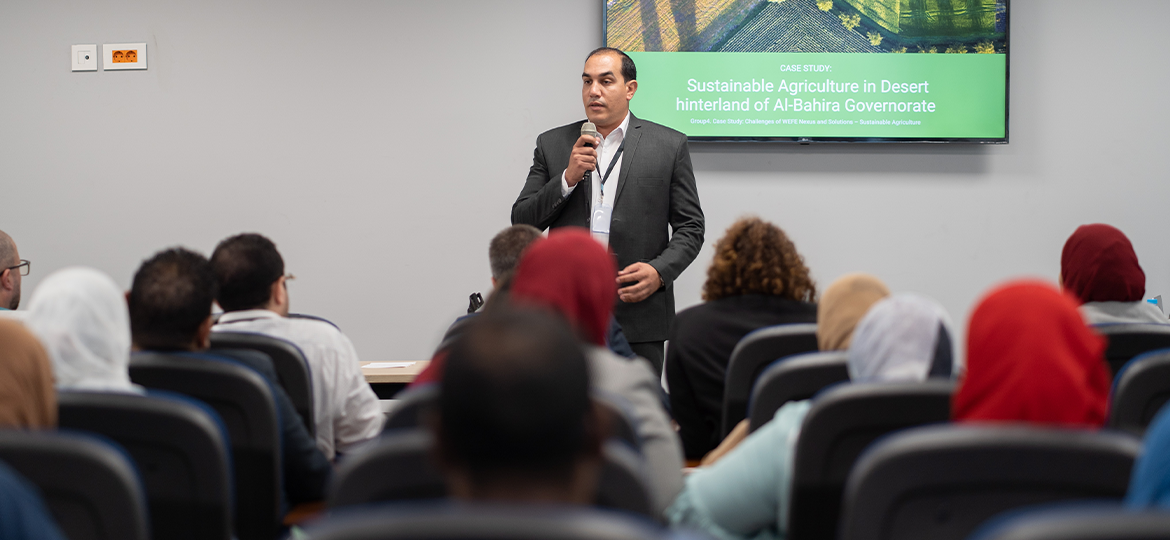
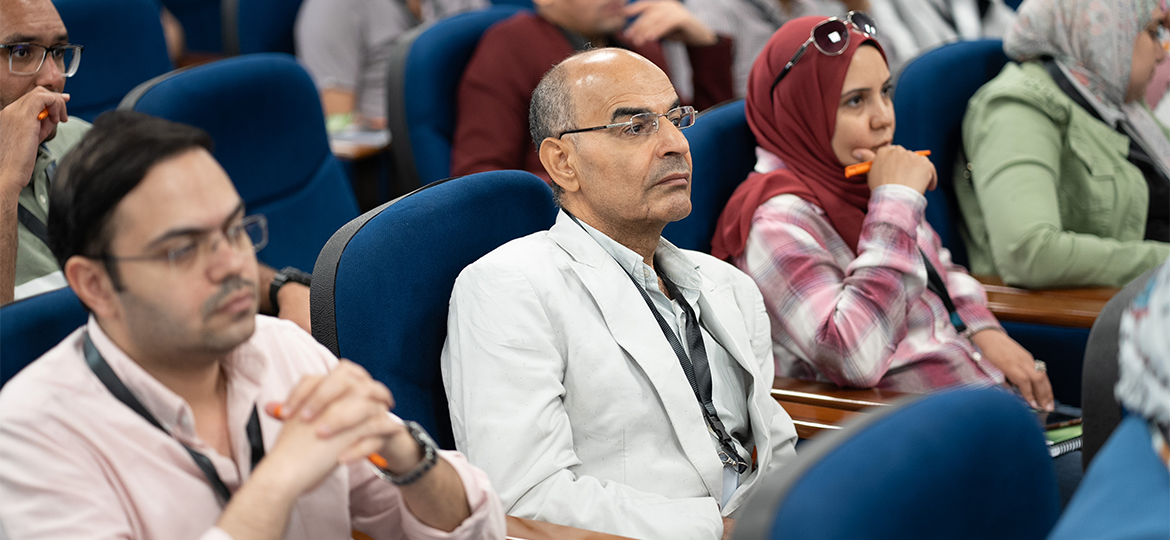
By promoting the WEFE Nexus approach through this Masterclass, Egypt seeks to enhance resource efficiency and promote sustainability; a mission aligned with the Sustainable Development Goals, and in particular the SDG 6 (Clean Water and Sanitation), SDG 13 (Climate Action), SDG 14 (Life Below Water), and SDG 15 (Life on Land).
This interactive professional development training allowed selected participants to become familiar with WEFE Nexus approaches, explore different tools, and discover on-site implementation. Being equipped with this new knowledge, participants will now be able to apply the WEFE Nexus framework in their research with the objective to tackle resource and societal challenges and create real impact for Egypt.
This Masterclass benefited from the inputs and contributions of and six project management specialists and 13 international subject matter experts including Prof. Mike Jacobson (Penn State), Dr Bassel Daher (Texas A&M University), Prof. Ali Rhouma (PRIMA Foundation), Dr Mohamed Wageih (PRIMA Foundation), Prof. Ali Karnib (Lebanese University ), Dr Jauad El Kharraz (Regional Center for Renewable Energy & Energy Efficiency (RCREEE)), Eng. Ghada Amin (German Agency for International Cooperation (GIZ)), Prof. Fernando Nardi (NEXUS-NESS), Prof. Mohamed Bahnassy (Alexandria University), Mr Mostafa Hassanen (Zon Gardens, project AWESOME), Mr Muhammad Khaled (American University Cairo, CARES), and Mr Fahad Kimera (American University Cairo, CARES).
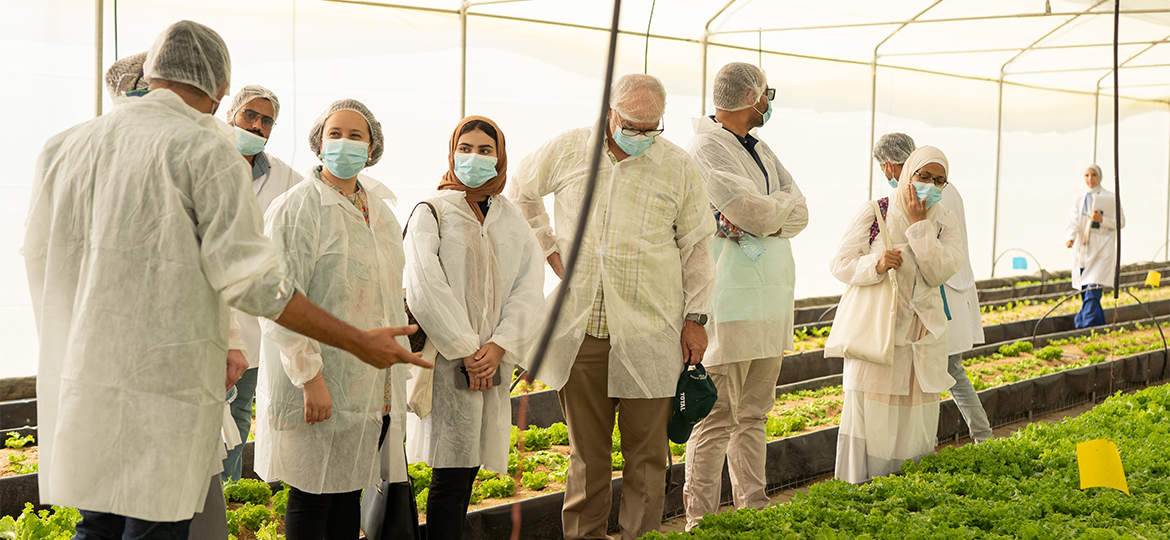
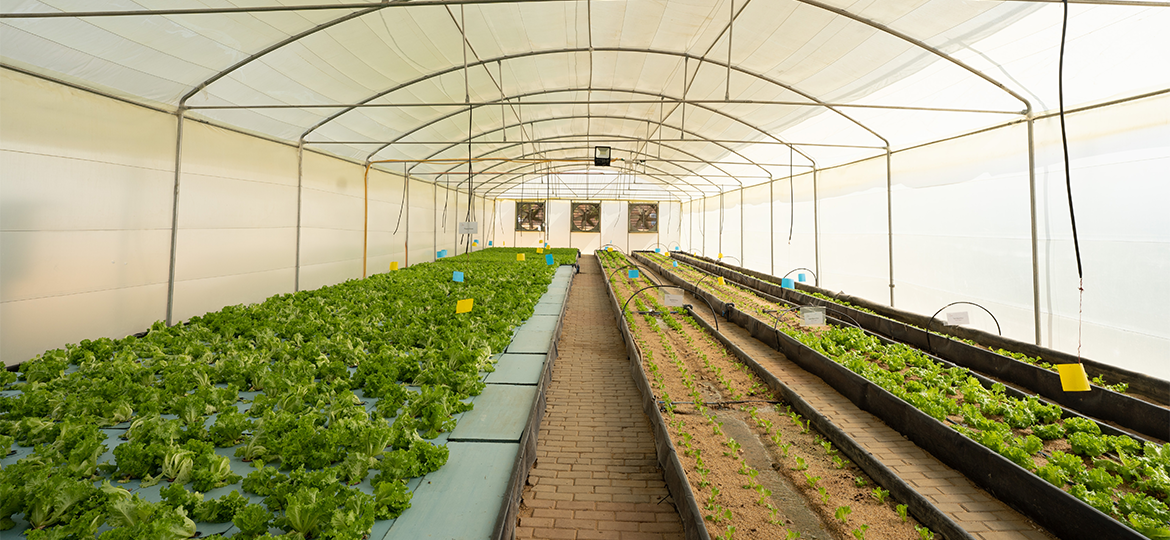
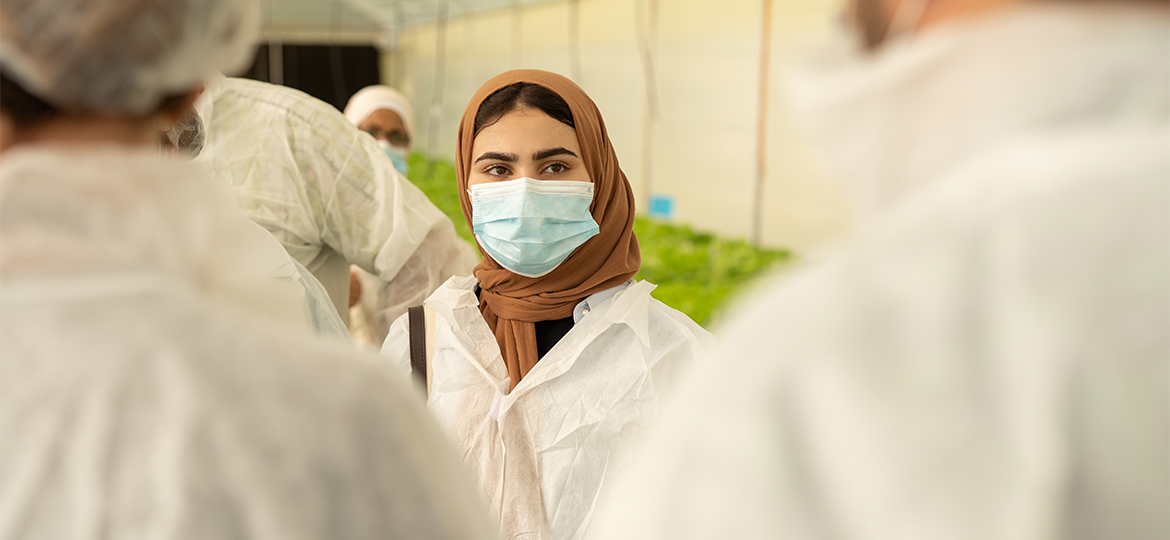
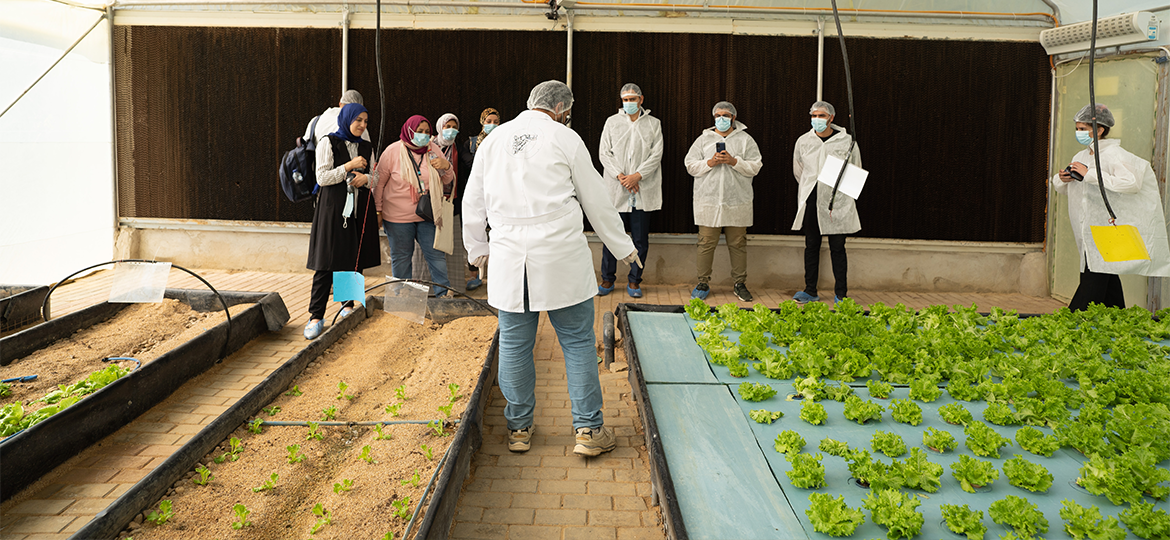
The three-day masterclass covered the following topics:
Day One – Understanding the WEFE Nexus & Its Challenges
✔ Understanding the WEF Nexus and the Challenges of Nexus Analysis
✔ Lessons Learned from Global WEF Nexus Case Studies
✔ Group Work Orientation and first steps based on Selected Nexus Cases from Egypt and the MENA Region
Interested in our news? For media enquiries please contact us at pr@knowledgee.com
Day 2 – Understanding WEFE Nexus Modelling & Governance
✔ Tools: Assessing the Quantitative Interconnections of WEF Sectors at the Country Scale Using the Q-Nexus Web tool & Quantitative and Qualitative Analyses of the WEF Nexus – WEF Nexus Tool 2.0
✔ WEFE Nexus Governance: Review of Models and Stakeholder Engagement
✔ Ongoing Activities in Egypt’s NEXUS-NESS NEL
✔ The Gender and Equity Dimension in the WEFE Nexus
✔ Operational Modeling in the Mediterranean Region: Case Studies from Egypt
✔ Group Work
Day 3 – Operationalising of WEFE Nexus Solutions
✔ Group Presentations and Feedback
✔ Project AWESOME Site Visit
Partner information
Egyptian Ministry of Higher Education & Scientific Research
The Ministry of Higher Education and Scientific Research (MOHESR) is one of the national institutions concerned with building human and academic personality of a broad spectrum of youth across universities and higher institutes. Seeking to realize its objectives of building a modern normally integrated personality capable of performing its mission in society and shouldering its responsibilities towards its nation, the ministry is tapping all scientific and technological capacities and potentials of the age.
Egyptian Knowledge Bank
The Egyptian Knowledge Bank (EKB) is an initiative launched by Egypt’s President Abdel-Fattah El-Sisi. It is the world’s largest digital library, granting unlimited resources exclusively for Egyptians. The EKB aligns with Egypt’s 2030 strategy and directly supports governmental aims to promote human resources through education and, bring the illiteracy rate to the default zero, and place 10 Egyptian universities on the list of the global top 500.
Knowledge E
Established in 2012, Knowledge E (KnE) is an educational services and products provider based in Dubai with the vision of ‘a more knowledgeable world’. KnE provides scholarly content to academic institutions throughout the Middle East and North Africa and delivers training courses to researchers, scholarly editors, librarians, university leaders, and academics. Combined with publishing and editing services, KnE’s offerings aim to provide knowledge to research communities across the region and enable them to increase the impact of their results, thereby deepening integration into the global knowledge network and supporting the development of knowledge economies.
PRIMA Foundation
PRIMA (Partnership for Research and Innovation in the Mediterranean Area) is a ten-year Public-Public Partnership (2018-2028), set up under Horizon 2020. PRIMA is an intergovernmental programme of innovation and scientific diplomacy launched by the European Union and 19 countries of the Euro- Mediterranean area. PRIMA’s vision is to foster joint research and innovation approaches among Mediterranean countries to improve water availability, sustainable agriculture, and food production in a region heavily distressed by climate change, urbanisation, and population growth.
SustainFood
SustainFood is a collaborative platform that promotes food security through linking, building and accelerating international, transdisciplinary teams of researchers, students and practitioners across US, African, and European networks that provide sustainable solutions using the WEF Nexus. These are achieved through network-to-network research, education, and community outreach activities. The project’s vision is connecting science and policy networks for zero hunger in Africa.
Egyptian Center for Innovation and Technology Development (ECITD)
ECITD is an independent centre and inclusive hub for connectivity, convening, and catalyzing R&D in support of innovation strategies, with a clear mandate to advance technology management and innovation practices. The centre examines complex multidisciplinary issues from diverse points of view by embracing a broad definition of “science”, including health & biomedical, social and human sciences as well as engineering and Agro-food, and explores the respectful integration of traditional indigenous knowledge for maximizing technological and socioeconomic impact.
Zon Gardens (Project AWESOME Partner)
Zon Gardens delivers research and development in the field of sustainability and WEF Nexus and is a partner in project AWESOME, funded by the PRIMA foundation. The organization is responsible for designing, developing, and operating the different innovative technological solutions demonstrated at the micro-scale to produce more crop per drop and supporting the consortium with all the logistical and socio-economic studies conducted on the micro scale.

